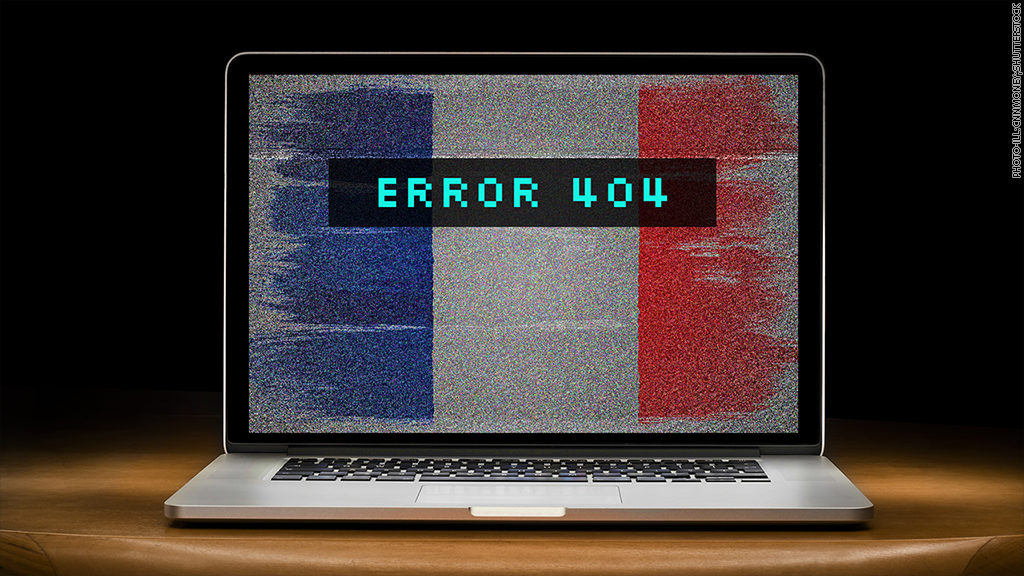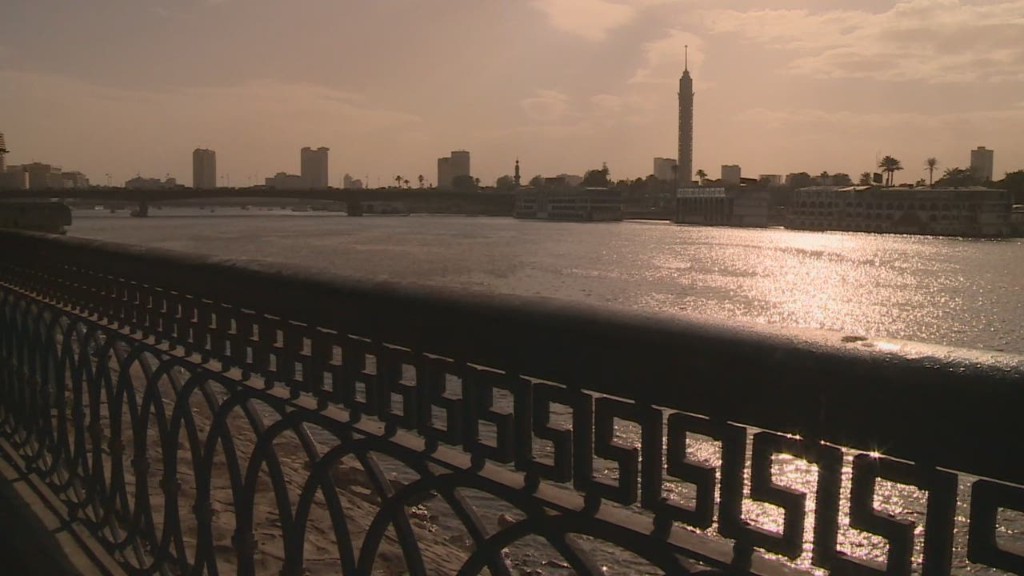
19,000 French civilian websites are under attack by hackers, according to France's head of cyberdefense.
The scope of attacks is unprecedented, Rear Admiral Arnaud Coustillière said at a press conference Thursday.
The French Defense Ministry and ANSSI, that country's version of the NSA, confirmed to CNNMoney that they have monitored a large wave of cyberattacks on all sorts of French websites.
Since Saturday, hackers have defaced the websites of French businesses, religious groups, city governments and universities with pro-Islamic images and messages, government officials told CNNMoney. They essentially played graffiti artists, replacing website homepages.
Coustillière said the French Defense Ministry's website was also bombarded with junk Internet traffic in a denial of service attack, causing it to be temporarily inaccessible. The attacks were small and quickly addressed.
In an interview with CNNMoney, Coustillière suggested this wave of attacks on the private sector and government are more of an annoyance than anything harmful.
"These attacks have no effect on the conduct of our operations," he said.
Guillaume Poupard, general director of ANSSI, told CNNMoney this was nothing more than vandals targeting small entities with little computer security.
"It's not a very complex attack. They're looking for weak targets," Poupard said.
Indeed, a cursory review by CNN showed that the 15 most popular French websites were fine and working without interruption.
This wave of attacks seems to be part of a tit-for-tat. Last week, members of the ragtag hacker collective Anonymous blocked a jihadist website to show their support for Charlie Hebdo.
The cyberattacks also appear to be retaliation from jihadists against Charlie Hebdo's controversial cover. In the wake of the Charlie Hebdo massacre, the French public has rallied around the right to free speech and the satirical magazine whose cartoons often offend Muslims. This week, Charlie Hebdo published a magazine that features a tearful Mohammed on the front cover.
Al Qaeda in the Arabian Peninsula, a branch of the larger organization, has since claimed responsibility for the coordinated physical attacks.
For perspective, major websites all over the world are constantly under attack by hackers seeking to take them down or break in to steal sensitive information, such as credit card numbers.
But what could make this episode in France noteworthy is that it's yet another sign that the digital world -- websites, apps and social networks -- are increasingly targets on a battlefield without national boundaries.
"We are seeing a re-occurring pattern that physical terror attacks, such as those in Paris last week, are also accompanied by a wave of cyberattacks," said Emmanuel Benzaquen, head of cybersecurity firm Checkmarx.
CNN's Alanne Orjoux and Samuel Burke contributed to this report.

Related: British PM says if government can't spy on it, you shouldn't be allowed to use it

